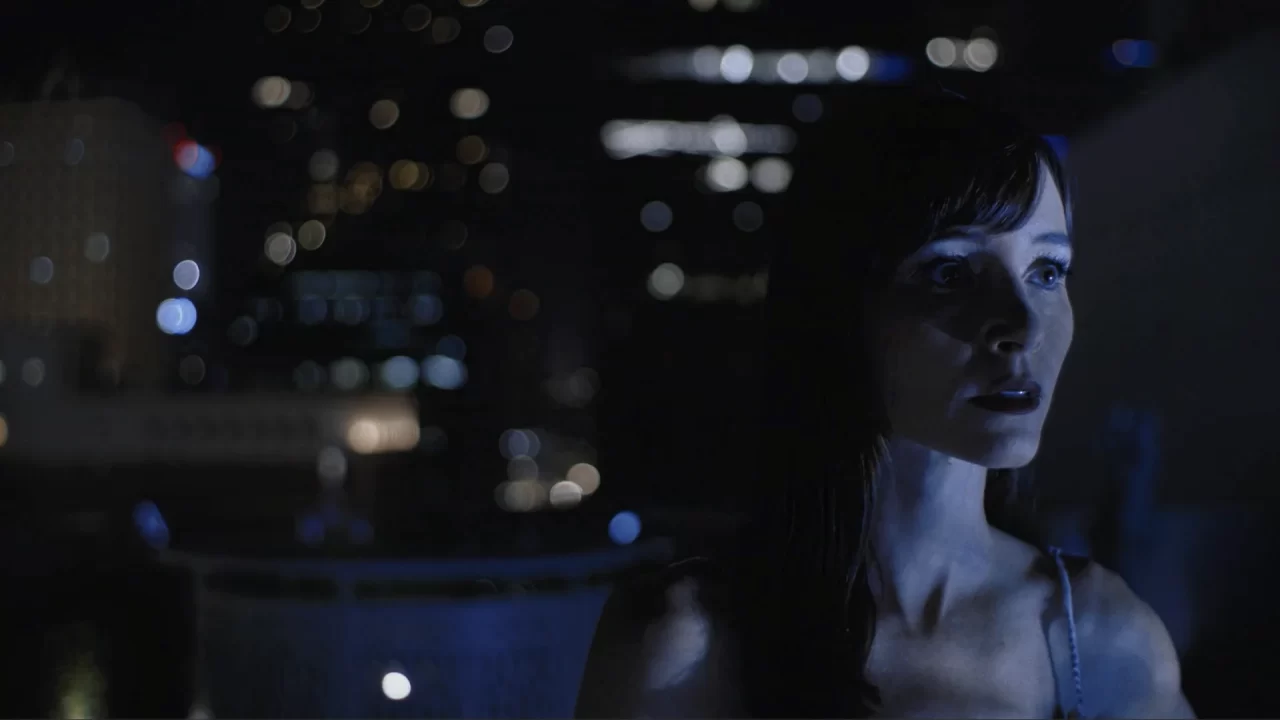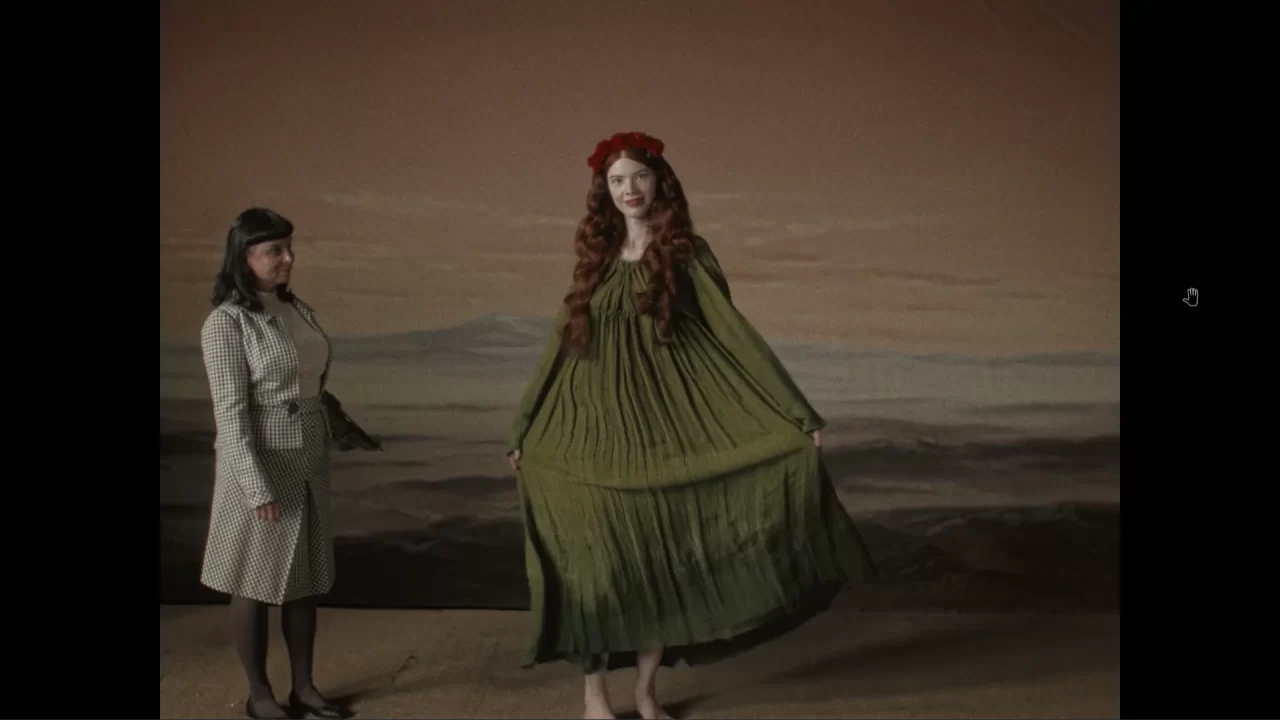I’m not super familiar with Sam Barlow’s games. I’ve never played Her Story, I’ve only recently heard of Telling Lies, and only really had Immortality on my radar recently. That means that I’m looking at Immortality with fresh eyes as it releases for PS5 and Switch, and let me tell you, the experience ended up being one well worth investing in.
Immortality focuses on the life of fictional actress Marissa Marcel, as seen through various clips of her movies, her interviews, rehearsals, and more. The player’s job is to discover what happened to her and those around her by scrubbing through videos and clicking on various people and objects in frame to unlock new clips.
This seems deceptively simple, but piecing together everything keeps your mind engaged. Figuring out the plot of the three movies involved, discovering behind-the-scenes drama, and uncovering who the big players are is fascinating. There is little telling you when you’ve made progress in the game. You get a trophy here and there, and there are credits, but in my case those credits rolled well before I truly understood everything that happened. Suffice to say, there are far more secrets than I can go into in a review.
This makes for an experience that may not click for everyone. You watch movies as often as taking action, and it occasionally feels like the game was made specifically for film buffs. But as you get into the overarching plot, there’s something much broader at play. Throughout, you also get a heap of commentary about acting, getting films made, misogyny, the masks we wear, and more. Immortality is a game with a lot to say, but you have to dig into it to figure out the exact message.
It doesn’t always go well, however. Finding new clips and scrubbing through existing ones happens constantly to start, but as you begin truly uncovering the secrets of the experience, it gets increasingly difficult to remember which clips you’ve watched and which items you’ve clicked in each clip. There’s reason to try to get all of the clips, as some secrets won’t fully make sense unless you see a specific clip or scrub through one at a specific time. Even figuring out the “how” and “why” for the basic gameplay elements can be hard to parse when you’re getting started, and the game is not super interested in helping you. You’re meant to explore and figure things out on your own.
Unsurprisingly, these elements work together to create a particular type of experience. Those looking for enthralling gameplay are going to be left dry. Those who need guidance through their game will likewise feel adrift. But if you can move at the pace of the game, you discover something truly exceptional.
Let’s start with the acting. Almost everyone we see and get to know plays at least two roles: their role in the movie and the actor behind the role, often switching between both in a single scene. Actors meant to be talented come off as talented, even when their off-screen persona leaves more to be desired. Characters don’t monologue about their feelings, so emoting is the only way you can read a lot of the scenes. Tracking the relationships between these characters is fascinating as a result. One example is seeing two people as coworkers up until they kiss after the director calls cut. Actors leave projects, actors are miscast, directors have their own issues as the game critiques auteur theory throughout.
The story is relayed in a fascinating way as well. It’s unlikely to unlock all the clips in chronological order, so huge reveals can happen at any time. Each player will have a different journey to uncovering the truth, and the fact that things are so rarely spelled out for you means even players who have seen the same clips might not have caught the same prominent details. The game is a project where your goal isn’t to reach credits but to truly understand what is going on.
The sense of time is palpable in Immortality. Each movie/era comes with its own set of subtitles, making it easier to see at a glance which movie you’re watching. However, the quality of the film, the style of the acting, and the actors involved all inform when and where any given clip is. This is another gift to film buffs, as each movie really feels of its time and offers commentary on the concurrent movies. All three are meant to be somewhat provocative, and it’s fascinating to see what is considered scandalous in each era.
But truly, going too deep into the game risks ruining the experience. Any tips I offer take away a moment of discovery you can run across yourself. Any sense I make of the narrative means connections you don’t get to make yourself. And the game lives in that sense of discovery. It’s why rolling credits doesn’t really matter. Immortality was not made to be crossed off your backlog and left behind. It’s a story meant to change you, or at least your thinking, in a number of ways. And for many folks, it’ll succeed because the game is an absolute gem.
And that brings me to my most important piece of advice: just play Immortality. Don’t think too hard about it. Don’t check a dozen reviews, don’t go hunting for recommendations, and especially don’t try to figure out how to do anything from sites that will spoil everything for you. Immortality is an experience you deserve to have. Yes, it won’t make sense to everyone. Some will be frustrated by the lack of traditional gameplay. Others might struggle to connect to these characters. But there’s so much to the game, at first glance and deep under the surface, that you owe it to yourself to see what camp you fall in. As for me, I’m going to dive back in and try to get the clips I’m missing. I know the broad strokes of what happened over the thirty-year span the game covers, but it always feels like there’s more to find.






